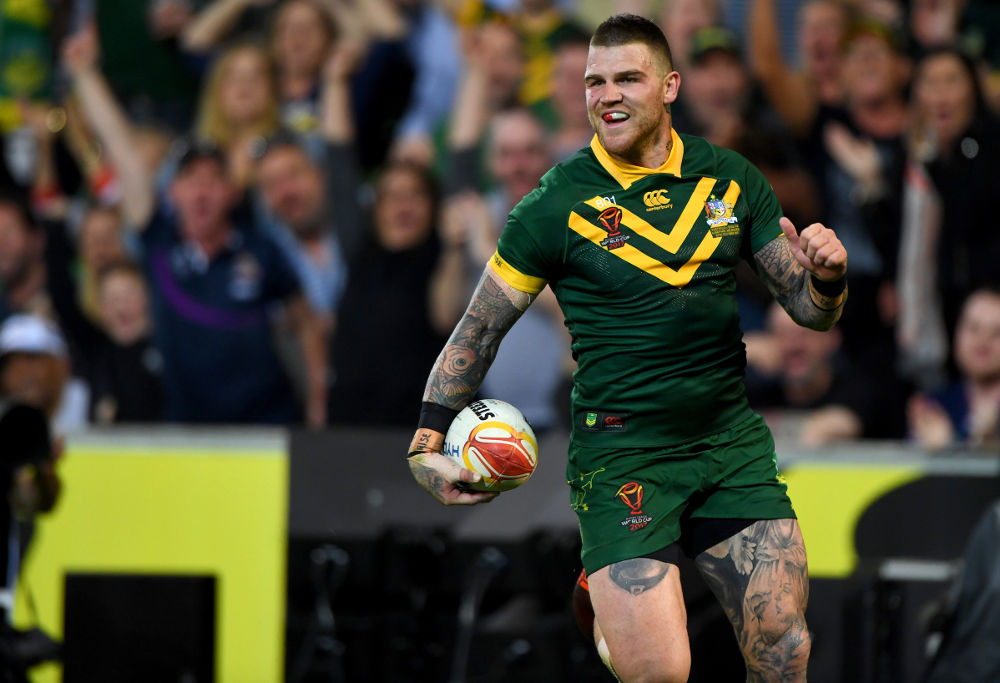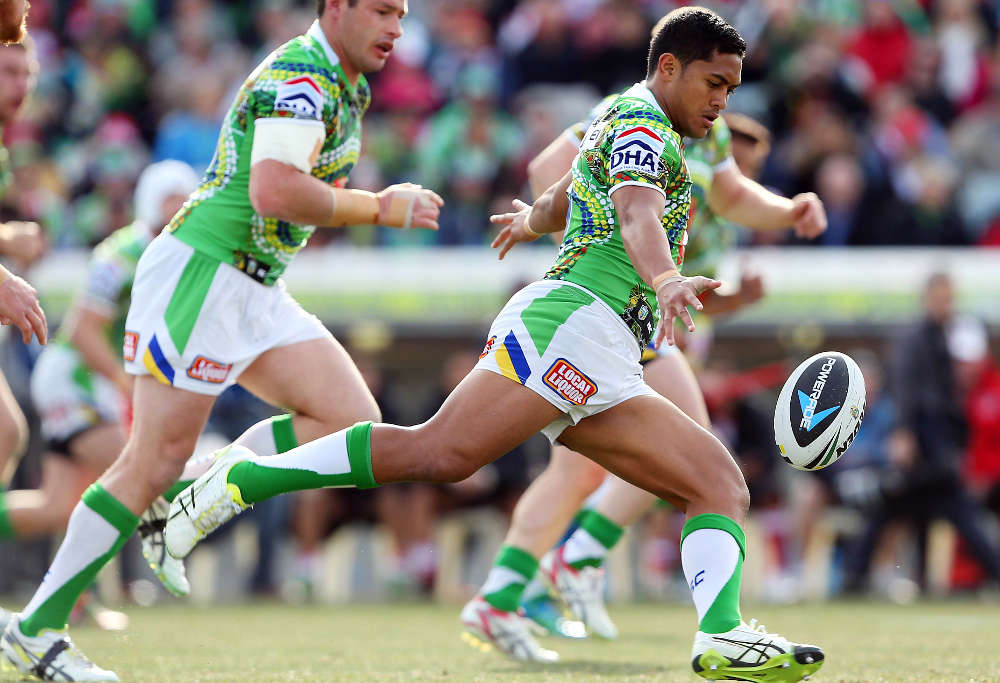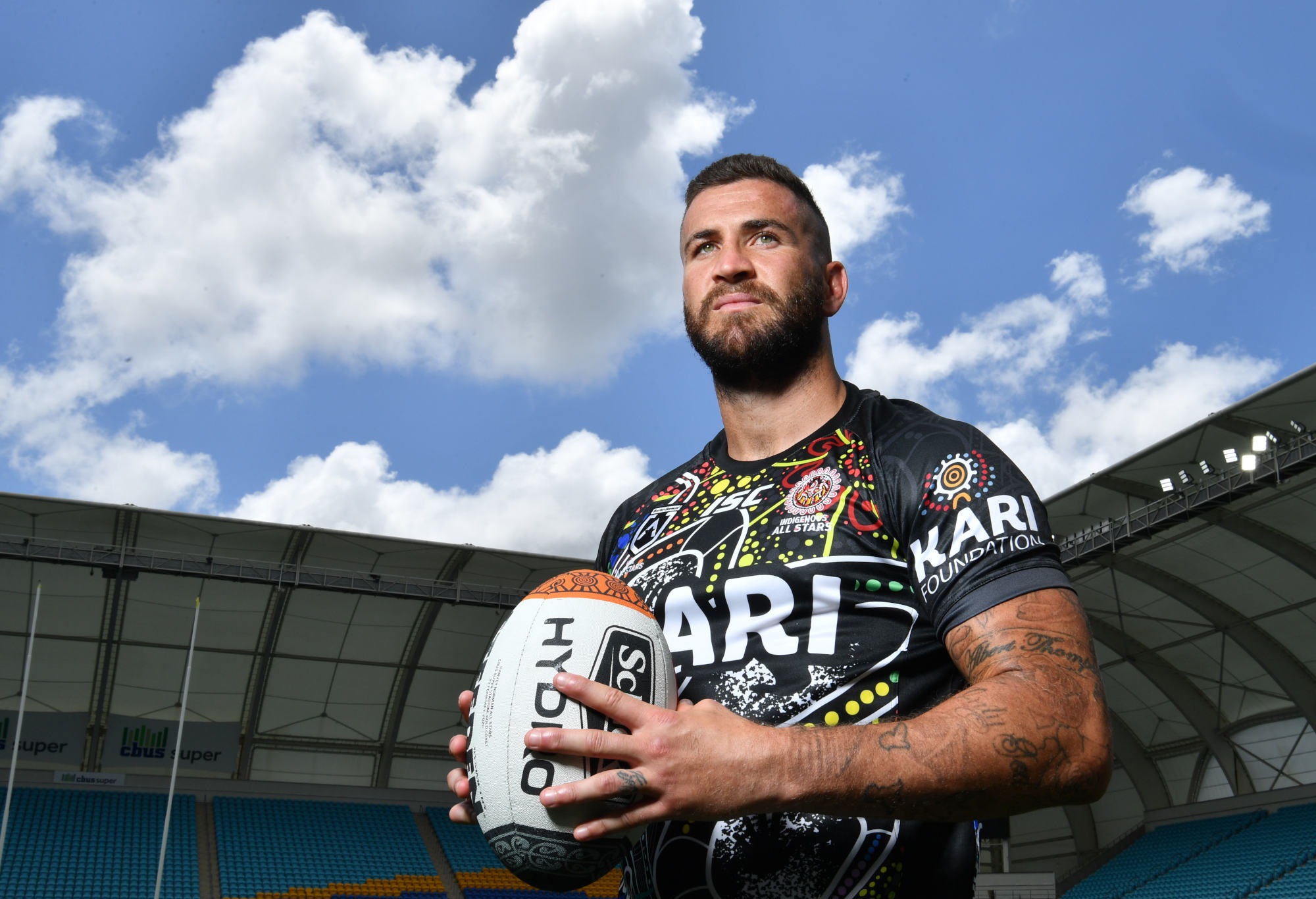
Sometimes fans are happy to see a player go, but losing a top player when they’re in their prime or a prospect with loads of potential is no fun at all, particularly when you see that player lining up for the opposition in the following season.
In this, the tenth article in the series, I’ll pick a team of the best players who got away from Canberra since 2000. The only criteria are that the player named must have made his debut for the Raiders, left the club after 2000, and then played with another NRL club, rather than just retired or headed to obscurity in either the ESL or rugby.
(Details in brackets are the year the player debuted for Canberra and the number of games played for the club.)
1. Josh Dugan (2009, 70 games) – Always somewhat of a troubled soul, Dugan was nonetheless a very good footballer, and could play anywhere in the outside backs. He was good enough to represent both NSW and Australia during his time at Canberra and could have been a club great in different circumstances.

Josh Dugan (NRLPhotos/Jeff Crow)
2. Michael Robertson (2001, 59 games) – Robertson struggled to make an impact during his five years with the Raiders but really kicked on when he joined Manly in 2006, going on to play 150 games for the Sea Eagles and winning premierships in both 2008 and 2011. A very good winger who was Manly’s gain and the Raider’s loss.
3. Adrian Purtell (2006, 64 games) – Purtell was a very handy outside back and topped the Raiders try-scoring list in 2008, but left the club for Penrith in 2010 when injuries and form kept him out of the top grade. Just a good first grader.
4. Phil Graham (2002, 111 games) – Graham was a very much underrated outside back but he spent 8 years in Canberra before joining the Roosters in 2010, by which time his best football was behind him.
5. Edrick Lee (2012, 67 games) – Lee can really produce the goods on his day and was destined for big things only to be held back by numerous injuries. By the time he left the Raiders for Cronulla in 2017, his form was, at best, inconsistent. No real loss for the Raiders.
6. Anthony Milford (2013, 42 games) – Milford made his debut at just 19 years of age and was named Canberra’s rookie of the year in 2013, going on to represent Samoa that same year. He had another strong season the following year but rejected Canberra’s offer to extend his contract and, instead, headed to the Broncos in 2015. One that the Raiders should have hung on to.

Anthony Milford (Digital Image by Robb Cox ©nrlphotos.com).
7. Todd Carney (2004, 71 games) – Carney was destined for stardom after his break-out season in 2006 but just couldn’t behave like an adult for more than a few weeks at a time, particularly after a drink or two. His infractions eventually resulted in him being stood down from the game for the 2009 season, his Canberra contract was torn up and he then joined the Roosters in 2010. He briefly turned the corner in 2010 winning a host of awards including the Dally M, but he was always destined to fail, and the Raiders were much better off without him.
8. Michael Weyman (2003, 47 games) – Weyman always struggled with his on-field discipline at the Raiders and seemed to prefer a fight to a feed. He finally played to his ability after signing with the Dragons in 2009, going on to win a premiership and selection for both NSW and Australia. One that got away.
9. Travis Waddell (2009, 53 games) – After performing well in the NYC Waddell made his first-grade debut at the age of 18 and was Canberra’s first choice hooker across the 2012 season but was released by the club at the end of that year. He had a couple of seasons with both Newcastle and Brisbane but never reproduced his early career form.
10. Ryan O’Hara (2001, 95 games) – O’Hara barely missed a game for the Raiders for the first four seasons after making his debut in round 3 of 2021 but injuries and form severely limited his appearances in 2005. He headed to the Tigers in 2006 and had a good first-up season for them before his form fell off a cliff in 2007. No real loss for the Raiders.
11. Sean Fensom (2009, 139 games) – Fensom was one of those players every club wished they had – fearless, a high work rate, and a devastating defender. Injuries saw his form dip significantly in 2016 and he made the move to the Cowboys the following season. Canberra probably had the best of Fensom by the time he left.
12. Joel Thompson (2008, 89 games) – Thompson made a steady start to his first-grade career and his star was steadily rising when the Dragons surprisingly signed him in 2014. A very reliable club player.

Joel Thompson. (AAP Image/Darren England)
13. Ryan Hinchcliffe (2007, 21 games) – Hinchcliffe had firmly established himself in the top grade at Canberra towards the end of the 2008 season, originally as a bench option and then at hooker. Melbourne obviously liked what they saw and signed him for 2009, and he went on to be one of their better players over the next seven years. One that got away from the Raiders.
When looking through this list it appears that the best of the players to get away had discipline problems during their time at Canberra. Players like Dugan, Milford, Weyman, and Carney all went on to better things once they left the club, even though their discipline issues continued. The rest of the list were good to very good club players, so losing them was no big issue.

Leave a Reply